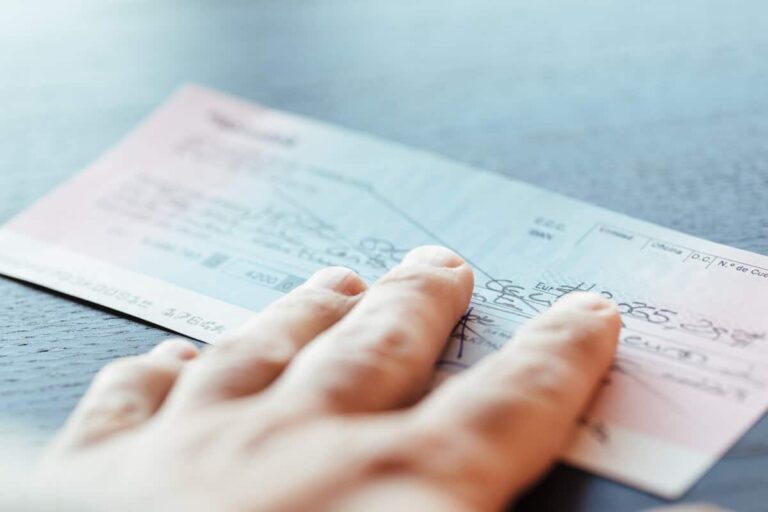
If you’ve just deposited a paper cheque, you’re probably wondering when you’ll have access to the funds. Wouldn’t it be convenient if it were instantaneous? Unfortunately, the time it takes for a cheque to clear can vary depending on several factors. Let’s explore why this happens, what timeline you can expect, and steps you might take to speed up the process.
What Does It Mean For a Cheque to Clear?
Clearing a cheque is the process by which your bank (the payee’s bank) requests funds from the payer’s bank and ensures there are sufficient funds in the payer’s account to complete the transaction.
A cheque is essentially a promise to pay, but there’s no guarantee the payer has enough money in their account. That’s why banks take time to confirm everything behind the scenes before crediting the funds to your account.
How Long Does It Take For a Cheque to Clear?
In the UK, cheques typically take two to three working days to clear, thanks to the Cheque and Credit Clearing Company’s imaging system. This process is much faster than in the past, when physical cheques had to be transported between banks.
Most cheques deposited before the bank’s cut-off time are processed the same day. For example:
- Day 0: Deposit the cheque before the cut-off time.
- Day 1: The bank processes the cheque and submits it for clearing.
- Day 2: The funds are cleared and available in your account.
If you deposit a cheque via mobile banking or at an ATM, the timeline is usually the same, though some delays can occur depending on the cheque’s amount or origin.
Send and Receive Money Internationally in the UK with Remitly.
Get started with our free mobile app.
Download
How Long Should You Wait Before Spending the Money?
Even if funds appear in your account balance sooner, it’s wise to wait until the cheque has fully cleared before spending the money. If the cheque bounces due to insufficient funds, your bank may reverse the transaction, leaving you liable.
If the cheque is from a trusted source, such as your employer, it’s usually safe to use the money once it shows as available. However, for cheques from unknown or international sources, it’s better to err on the side of caution and wait for full clearance.
Why It Might Take Longer For a Cheque to Clear
While two to three working days is the standard, some factors can delay the process:
- New accounts: If your bank account is relatively new, your bank may place additional holds on cheque deposits.
- Large amounts: Cheques with substantial sums might require additional verification.
- International cheques: If the cheque originates from overseas, it may take longer to verify and convert the currency.
- Irregular cheques: Cheques from unfamiliar sources may be subject to extra scrutiny to prevent fraud.
How to Reduce the Time It Takes For a Cheque to Clear
Although you can’t directly control how long it takes for a cheque to clear, there are steps you can take to minimise delays:
- Deposit before the cut-off time: Check your bank’s cut-off time for processing cheques and deposit it well before then.
- Use mobile cheque deposit: Many UK banks offer mobile apps that allow you to deposit cheques by photographing them. This can save time compared to visiting a branch.
- Request a banker’s draft: If you’re receiving a large payment, ask for a banker’s draft instead of a personal cheque. Banker’s drafts are backed by the issuing bank and clear faster.
- Maintain a good account history: Having a long-standing account with no overdrafts or bounced cheques can sometimes speed up cheque processing.

Alternatives to Cheque Payments
Cheques are becoming less common in the UK, with many people opting for faster and more secure payment methods. Consider these alternatives:
- Bank transfers: Payments via Faster Payments, CHAPS, or BACS are usually quicker and more reliable than cheques.
- Direct debits or standing orders: Ideal for regular payments such as rent or bills.
- Mobile payment apps: Apps like PayPal, Paym, or even your bank’s mobile app offer instant transfers.
By encouraging others to use these methods, you can save time and reduce the reliance on cheques altogether.
Frequently Asked Questions
Can a cheque clear on the same day?
Some cheques may clear the same day if deposited early via mobile banking or if they are banker’s drafts. However, most cheques still take two working days.
What happens if a cheque bounces?
If a cheque bounces, your bank will reverse the funds, and you may incur fees. Always ensure the payer has sufficient funds before relying on the money.
Can I cancel a cheque after I’ve written it?
Yes, you can request a stop payment with your bank, but this must be done before the cheque is presented for clearing.
Are cheques still widely used in the UK?
Cheques are less common but still used for certain transactions, such as paying tradespeople or in situations where electronic payments aren’t possible.
Do banks charge for processing cheques?
Most personal accounts do not charge for depositing cheques, but business accounts might incur fees. Check with your bank for details.
